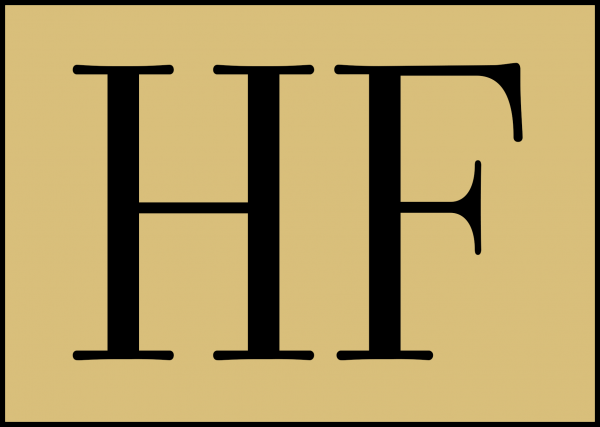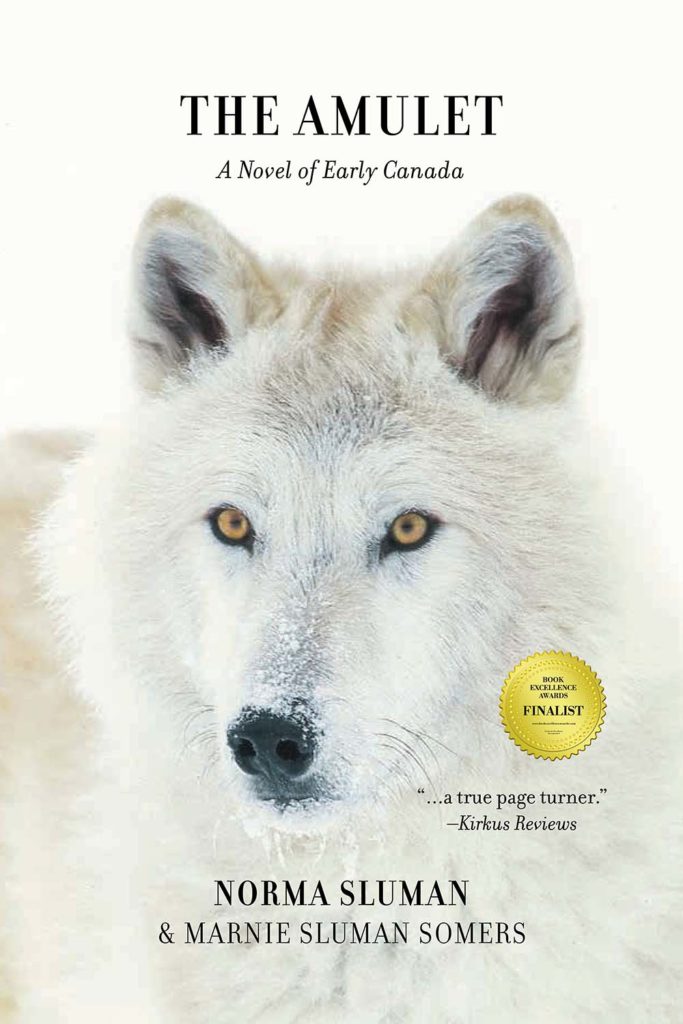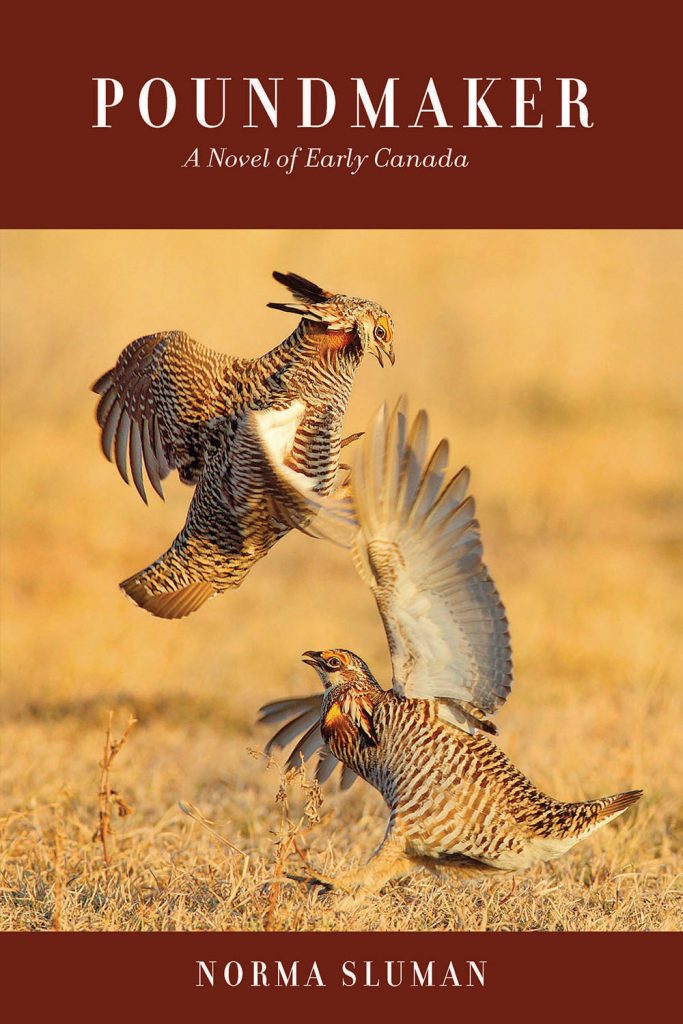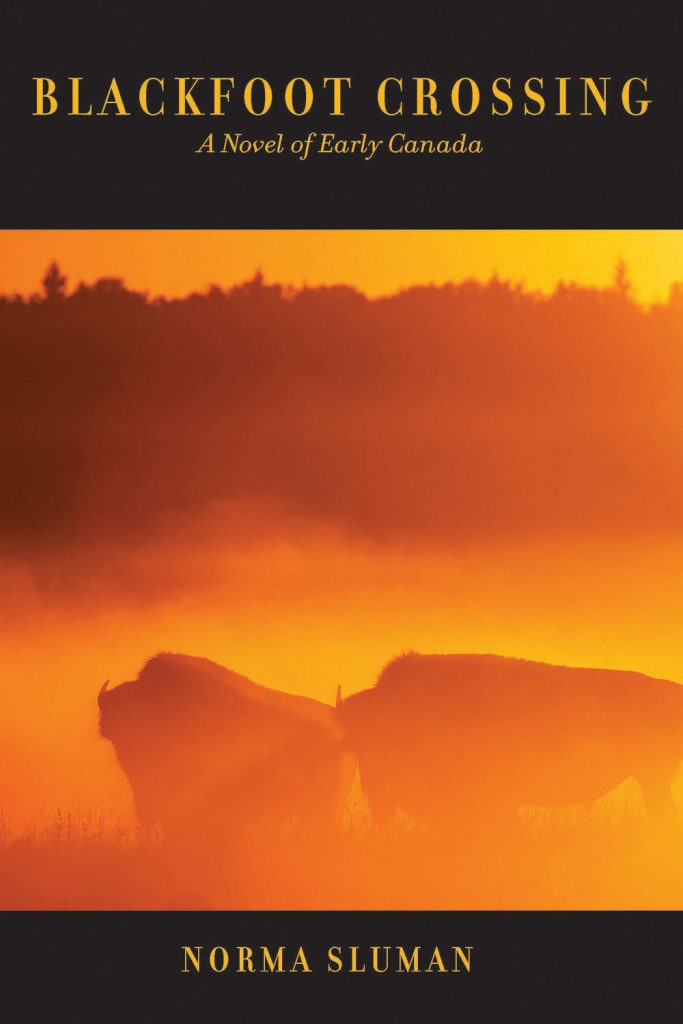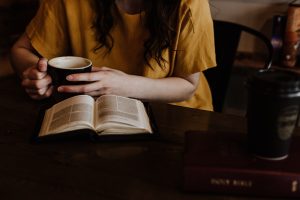For a long time I thought I knew the history of Canada. I thought I knew who did what, why they did it, and the background of where we are now. When I’m being self-reflective and thoughtful I know that thinking I fully understand something and I have nothing left to learn is an uninspired, unhelpful, and frankly dangerous place to be, but I’d been doing it for so long that I didn’t notice I was doing it.
What I Learned From The Amulet
I’m an editor. One of my jobs is to check the accuracy and realism of the stories I’m working on. I think about point of view and consistency, and the shaping of narrative. When I began to work on Norma’s manuscript of The Amulet with Marnie, I realized very quickly that what I thought I knew about Canadian history was full of holes. I fancied myself to be a generous and open-minded human but I had never once thought about who was telling the stories about Canada that I accepted to be full truth.
Norma was writing a novel. She didn’t pretend to be giving a complete account of Canadian history. She was telling a story and she added into it the stories she had heard from people who knew more than she did, more than most of us do if we’re honest.
Reading The Amulet wasn’t a full education for me, it would be unreasonable to expect it to be, but it was a glimpse, a hint, a nudge and it was enough to get me started reading more, listening more, asking myself questions, and hunting down answers from more than just the “traditional” sources. It started me doing the work to educate myself about the history of my country and fill the gaps in my knowledge.
It’s important to acknowledge that we don’t know everything. That what we think we know might be incomplete, flawed, or just plain wrong.
History is a Story
History is a story. We talk a lot about stories on this blog. We’ve spent a lot of time talking about point of view and how we can use it to demonstrate character and further the plot of our stories. What happens if we take that way of looking at stories and use it on the story of history?
Some things to think about:
- When you think about the story of Canada what point of view do you think about it from? Why?
- How would the story of Canada be different if it was told from an Indigenous perspective without any of the assumptions of European culture?
- In the story of Canada as you know it which characters did you learn about? What did you learn about the kinds of people they were and what was important to them?
- In the story of Canada what kinds of goals, actions, and behaviours are seen as “good” and “bad”? What does this tell us about the overarching ideas of what is right and wrong according to the author of this story?
- How does all this align with what you what you believe to be right and fair?
Learning Never Ends
It’s important to acknowledge that we don’t know everything. That what we think we know might be incomplete, flawed, or just plain wrong. But here’s the thing, continuously learning takes conscious effort. It’s so easy to fall into that comfortable place of thinking we understand something and letting it slip into the back of our minds, especially after we’ve made an effort to learn something new. Undoing and rebuilding a lifetime of learning takes a lifetime. We’ll never be done and if we think we are then we’re lying to ourselves.
Have you spent some time examining what you think you know about history, government, and Indigenous Peoples? What did you discover? How are you pushing past what you think you know?
If you’re interesting in learning more about the history of Canada’s Indigenous Peoples check out this free course from the University of Alberta: https://www.ualberta.ca/admissions-programs/online-courses/indigenous-canada/index.html
Indigenous Canada is a Massive Open Online Course (MOOC) that explores Indigenous histories and contemporary issues in Canada. From an Indigenous perspective, this course explores key issues facing Indigenous peoples today from a historical and critical perspective highlighting national and local Indigenous-settler relations.
I’m learning with you,
Laurie
Banner Photo by Johny Goerend on Unsplash
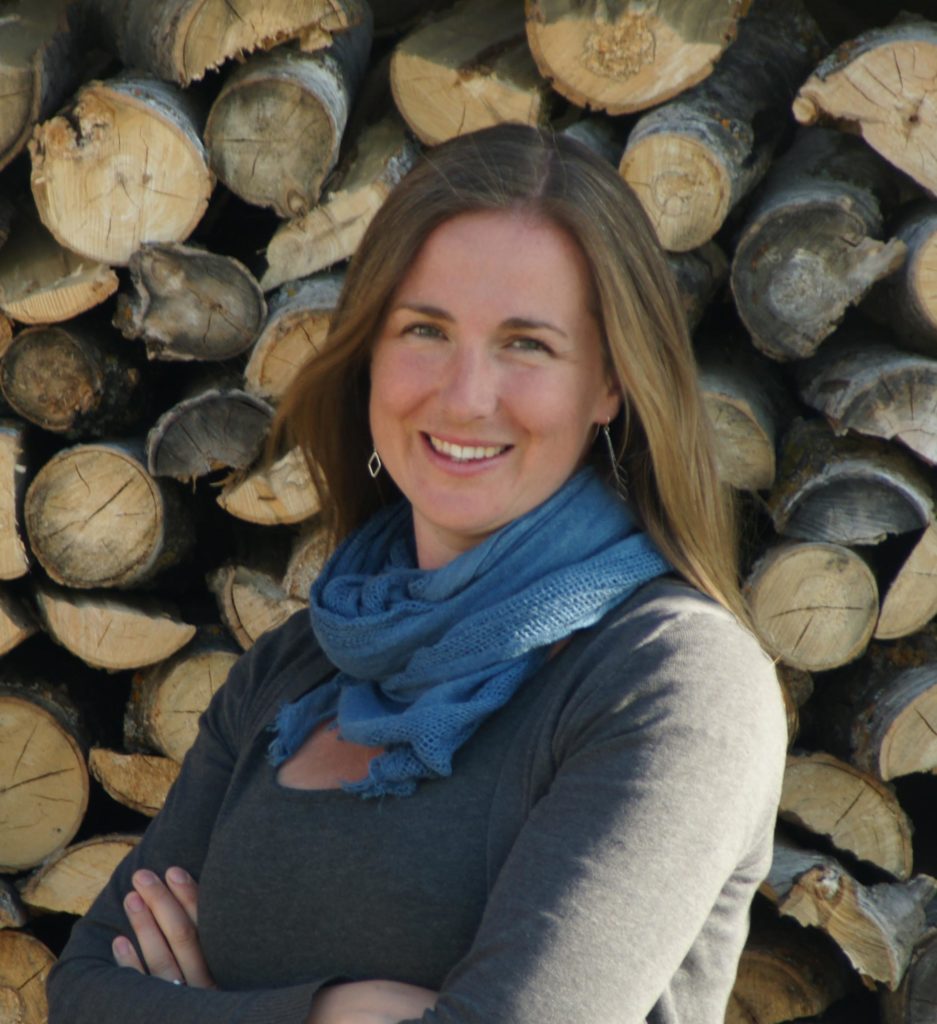
Laurie MacNevin, HF Associate Editor
Laurie is an editor, writer, and researcher. Her deep love of stories led to an Honours degree and a Master’s degree in English Language and Literature from the University of Windsor. Originally from Southern Ontario, Laurie has lived in Manitoba for more than ten years, exploring the stories, landscape, plants, and people of some of the most remote parts of the province including three years in Churchill and two years in God’s Lake Narrows First Nation. Laurie and her family now live on an acreage outside of Carberry.
Not a member of our FREE Book of the Month Club yet? What are you waiting for?
Want a chance to win a free book written by a different Canadian author? Join our Free Book of the Month Club! Every month we review a book by a Canadian author and give it away to one of our email subscribers. Our goal is to share the work of other Canadian authors to help readers find other writers.
